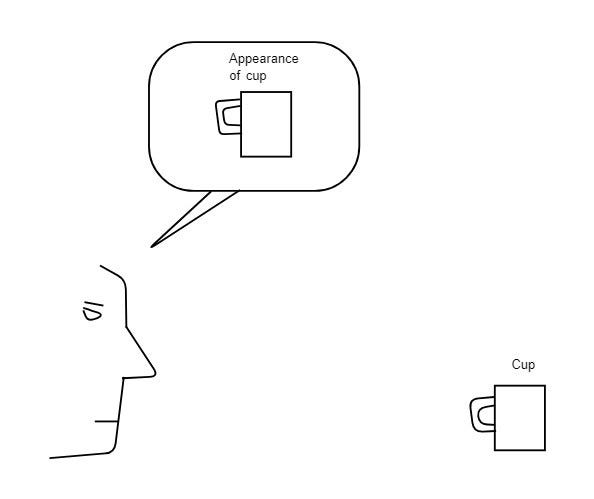
The cartoon depicts the simplest but most mysterious of situations: the mind in the act of perception. Consider the appearance of the cup in the mind of the observer. It is not the same thing as the cup itself, surely. It would be strange to say that the appearance is a physical thing of any kind, though it might correlate with physical events (a pattern of neural impulses or something). What is it?
The philosophical word for appearances is phenomena, and their study is called phenomenology. Phenomena include not just percepts, such as the cup, but hallucinations, dream-objects, and the objects of our memories, anticipations and wishes.
Notice that this terminology conflicts with ordinary and scientific usage, where “phenomenon” usually refers to something external.
Edmund Husserl was the founder of phenomenology in its modern form. Other prominent philosophers associated with phenomenology include Martin Heidegger, Maurice Merleau-Ponty, and Jean-Paul Sartre.
